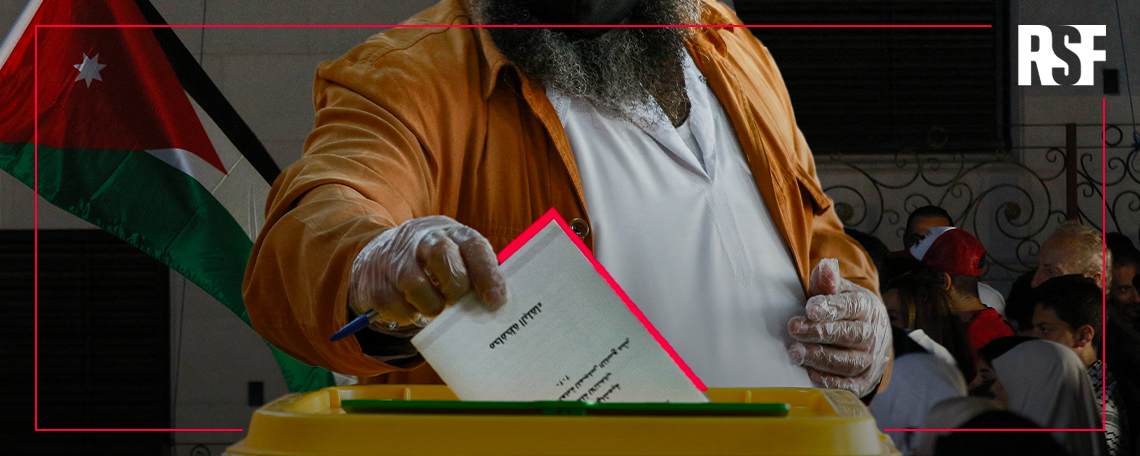
Bangladesh Investigates 28 Journalists Amid Crackdown on Protest Coverage
September 9, 2024
Philippines: Journalist Roy Barbosa Assaulted, Harassed and ‘Red‑Tagged’ During Protest Coverage
September 9, 2024September 09, 2024 – Jordan –
King Abdullah II enacted the new Cybercrime Law (Law No. 17 of 2023), significantly expanding restrictions on online speech and granting prosecutors sweeping powers to detain individuals—including journalists—without complaint under broadly defined charges of “fake news,” “defamation,” or undermining “national unity”.
Over the following year, the law has been repeatedly exploited to suppress dissent during Jordan’s heightened protests over the Gaza war and domestic issues. RSF reports that at least four journalists have already been convicted under the law, with two still imprisoned. Jordan’s intelligence services have leveraged their authority to monitor and intimidate media figures, regularly summoning reporters for interrogation under the guise of national security.
Amnesty International decried the law as “draconian,” highlighting its vague terminology and sentencing provisions that can imprison dissenters for months or levy severe fines, sometimes exceeding JD 70,000 (approx. US $98,000). The law’s ambiguous language—covering offenses like “provoking strife,” “contempt for religions,” or “character assassination”—has created a chilling environment where journalists and citizens practice self-censorship.
The repressive impact has been particularly felt since October 2023, as thousands were arrested for online support of Gaza or critique of Jordanian policy, including journalists questioned under administrative orders. Notable cases include satirist Ahmad Hassan al-Zoubi, jailed for a year over a Facebook post, and Hiba Abu Taha, sentenced to 12 months for criticizing the interception of Iranian drones.
RSF warns that the law institutionalizes a regime of control where internet censorship, surveillance, and legal threats suppress fundamental freedoms. Reporters report routine summons, jail threats, and pressure to join state-controlled associations, effectively stifling independent journalism.
Jordan’s cybercrime legislation has become a powerful tool for muzzling the press under national security pretenses. Press freedom advocates are urgently demanding legal amendments or repeal, transparent prosecutions, release of detained journalists, and unfettered digital expression to preserve democratic discourse in the kingdom.
Reference –




